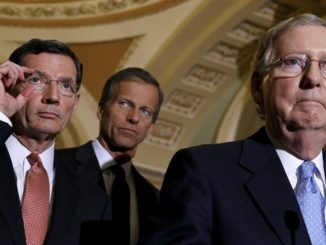
The Federal Reserve said it is on track to begin raising interest rates in March to the highest it’s ever been in nearly four decades, in an effort to combat inflation. Federal Reserve Chair Jerome Powell said that the central bank will begin raising them likely by a quarter percentage point.
Powell told the House Financial Services Committee that the Fed will proceed with caution, as Russia’s ongoing invasion of Ukraine continues to pile on uncertainties to the overall economic outlook of not only the United States but the world as a whole.
Powell said that the economics of events like this is uncertain and so far what we’ve seen includes a hike in energy prices; which will continue to go up even more. These increases will ripple through the economy and create even higher inflation. He said it will also weigh on spending.
Gas prices have gone up; with the average gallon now costing $3.66 by Wednesday. Energy prices are also rising, and are always typically a significant driver of annual inflation. Energy costs hit 7.5 percent in January, which is the biggest level since 1982. Powell said that inflation is too high, but it will take some time to get it under control.
The hike in interest rates is the first since 2018. It comes as costs for food, cars, gas, fuel and energy continue to rise. Experts and analysts expect the Federal Reserve to impose additional interest rate hikes later this year in an effort to cool consumer demand, which has outstripped supply and driven prices much, much higher.
On Ukraine, Powell said it is too soon to know how long-lasting price increases will be; or how high they will get. Because of this; he said the central bank’s rate-setting committee is prepared to be flexible. He said they never run on “auto-pilot” and that no one on the committee has an expectation that inflation will peak and begin to come down in 2022. If inflation comes in even higher, they will act even more aggressively.
Powell tends to try and avoid partisan fights in Congress and in politics in general. He said both Congress and the Fed had moved aggressively to try and bolster the economy during the pandemic, and that this had mixed results.




Be the first to comment